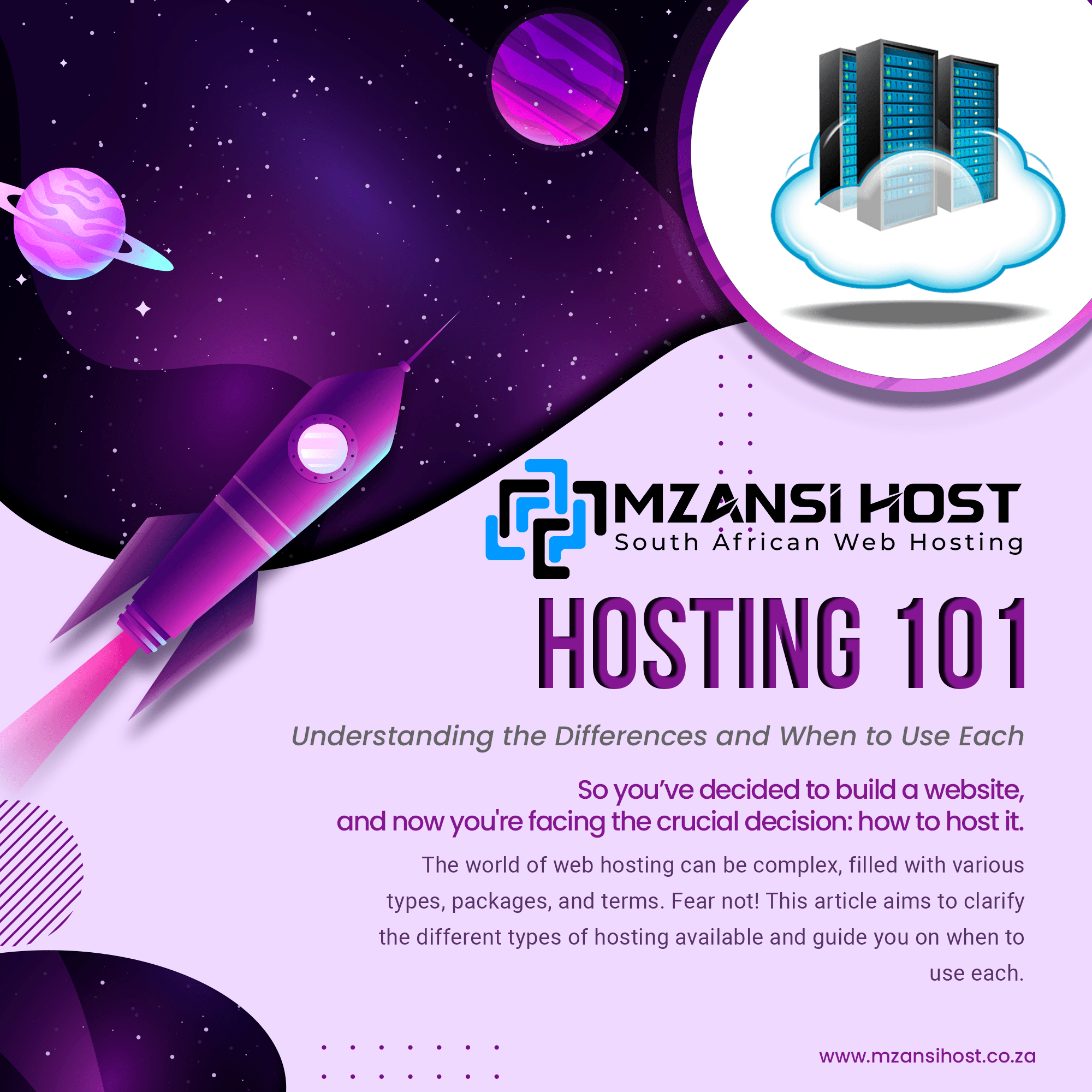
So you’ve decided to build a website, and now you’re facing the crucial decision: how to host it. The world of web hosting can be complex, filled with various types, packages, and terms. Fear not! This article aims to clarify the different types of hosting available and guide you on when to use each.
Shared Hosting
Overview: Shared hosting is like living in an apartment building; you share the space with other tenants but have your private area.
Pros:
- Affordable
- User-friendly
- Good for small websites
Cons:
- Limited resources
- Potential for slower performance
When to Use: Choose shared hosting for simple websites, blogs, or small business sites that don’t expect high traffic.
VPS Hosting
Overview: Virtual Private Server (VPS) hosting is similar to owning a condo. You have more control and more resources than a shared hosting plan.
Pros:
- Customizable
- Scalable
- Better performance
Cons:
- More expensive than shared hosting
- Technical knowledge required
When to Use: Opt for VPS when your website starts to grow, and you need more control over your resources.
Dedicated Hosting
Overview: Owning a house all to yourself—that’s dedicated hosting.
Pros:
- Full control over resources
- Optimal performance
- Enhanced security
Cons:
- Expensive
- Technical expertise needed
When to Use: Go for dedicated hosting for large enterprises or websites with high traffic and resource demands.
Cloud Hosting
Overview: Cloud hosting is like a vast network of interconnected apartments. Resources are pulled from multiple servers.
Pros:
- Highly scalable
- Reliable
- Pay-as-you-go pricing
Cons:
- Complex pricing structure
- Internet dependency
When to Use: Best for businesses that have fluctuating or unpredictable traffic patterns.
How to Host a Website: A Step-by-Step Guide
- Choose the Right Type of Hosting: Assess your needs and pick the most suitable hosting type.
- Register a Domain Name: This will be your website’s address (e.g., www.mzansihost.co.za).
- Select a Hosting Provider: Opt for a provider that matches your needs and budget. Consider factors like uptime, customer service, and additional features.
- Set Up Your Website: Use the control panel to install a CMS like WordPress or upload your website files.
- Test Your Website: Before going live, make sure everything is functioning as expected.
- Launch: Once you’re satisfied, publish your website and monitor its performance and security.
Conclusion
Choosing the right hosting service is crucial for your website’s success. While shared hosting may be an economical choice for beginners, VPS and dedicated hosting offer more resources and control. Cloud hosting, on the other hand, provides scalability and is ideal for businesses with varying traffic. Make an informed choice, and you’ll provide your website with the home it deserves.

Leave a Reply